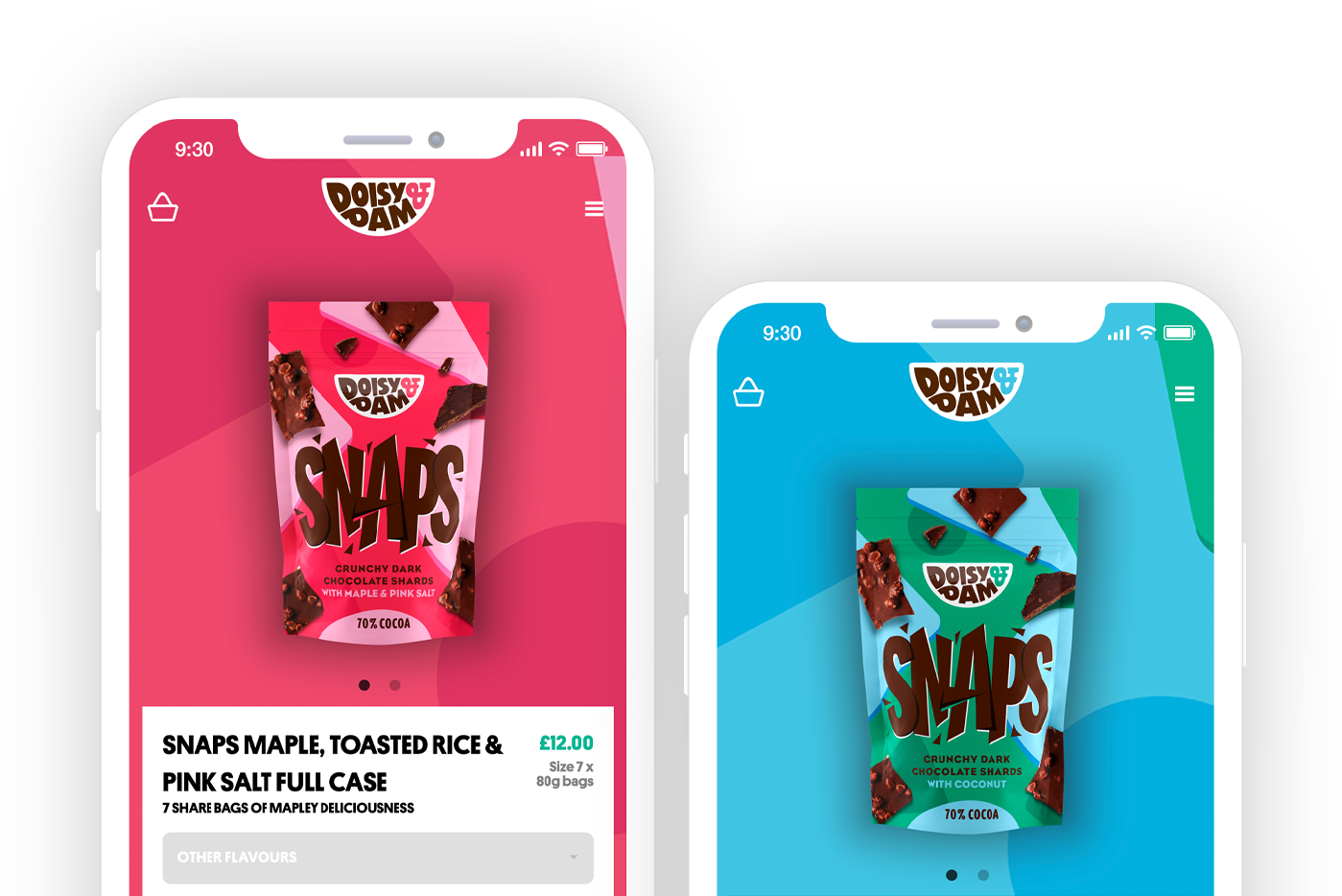What is SMS Marketing
SMS marketing, also known as text message marketing, is a subcategory of digital marketing that mostly deals with sending promotions or updates to a specific group of people through text messages.SMS marketing uses the popularity and wide adoption of the smartphone to connect with customers directly and interact with them through marketing materials.
Most SMS marketing is achieved by acquiring permission from consumers and allowing to send them promotional texts. For instance, marketers can use sign-up forms or tick boxes where the customers provide their mobile numbers on a voluntary basis or by integrating
SMS subscription options in other marketing channels. See our article on
top subscription brands on Shopify for industry examples.
Once the permission is granted, businesses can send targeted messages to their subscribers. These notifications can consist of either informational pieces of product releases, offers, discounts, alerts, surveys, and many more. Through the use of SMS marketing, businesses can shorten their way of communication and this can be done by reaching customer's mobiles devices directly, often more quickly than they’d see an email.
Key advantages of SMS marketing
High open rates: As opposed to emails, an SMS message typically is opened at a rate of 10 times higher, compared to other marketing methods such the sales messaging on
Klaviyo or other forms of marketing communication.
Direct and immediate communication: SMS marketing is an effective tool that allows businesses to send their customers messages directly to their mobile phones, so they can communicate with customers within seconds and in a very direct way.
Wide reach: SMS can be an effective way to reach a lot of people as almost everyone with a mobile phone can get text messages.
Personalisation: SMS marketing, at its core, relies on the personalisation that comes about from the use of the customer's names or previous engagements to direct the content to suit their needs and preferences.
Cost-effective: Generally direct text messaging proves to be more efficient in terms of cost-effectiveness compared to other marketing methods such as paid advertising or email marketing campaigns.
1. Build an Opt-In Subscriber List
Establish a list and make sure customers join the list to be constantly informed about new products and interesting discounts. The key to a successful SMS marketing campaign is to create a high-quality and opt-in subscriber list which is the bedrock of the whole campaign. Rather than spending money or using a bot to send multiple messages at once, it is more effective to focus on organic growth by incorporating sign-ups through a website, social media profile, and during the checkout process forms. Merchants can incentivise clients by offering them special deals exclusively available only to people whose phone numbers you have; early access to sales, or meaningful content in return for that they opt in to receive SMS notifications. This method makes sure that your subscribers are really interested in your brand and, thus, are more likely to interact with your SMS campaigns and stay opted in.
2. Craft Compelling and Concise Messages
Due to the nature of SMS, the length of the message is limited by number of characters. Therefore every word counts. Create messages that are short and appealing to the eye and which will catch the attention of the receivers from the very first moment. Initiate messages by addressing the customers' names, so as to relate the message to them. Keep the content relevant which is all about their interests and purchase history (personalisatoin). Utilise clear and attractive CTAs to trigger the urge to take action right away, for example "Buy Now to Get 20% Off Today. " It is noteworthy not to excessively abbreviate or use slang expressions that might confuse or annoy visitors of your site as to cause bounce rate. The main point is to get your communication is a low number of words; while also ensuring your expression is clear and powerful.
3. Optimise Landing Pages for Mobile
While driving traffic to your online store through SMS marketing campaigns, make sure that you link to the mobile-friendly landing pages. A well-structured SMS journey that eventually advances a user into a customer is absolutely paramount as part of a mobile experience. Make sure the landing pages are optimised for faster load time, responsive design, as well as a quick and simple checkout process. Landing pages must be optimsed for faster load time, responsive design and the checkout process should be a seamless experience. It is crucial that your landing pages are mobile-friendly by using a design that will adjust to different devices, browsers and screen sizes.
4. Monitor and Analyse Campaign Performance
Track your SMS campaigns on a regular basis to find out your rate of return on investment and flawed aspects that require improvement. Keep tabs on metrics such as the percentage of people who opened the message, the percentage who clicked through to the website, the conversion rates, and customer engagement. Utilise analytics software to get insights of the customer's behavior, preferences, and trends. Inspect the performance of different campaigns, announcements, and offerings to learn what seems to be the most relevant content for your audience (also known as A/B testing). You can ase your decisions on empirical evidence, and keep yourself attuned to the changes in the SMS marketing strategy, which would enable you to achieve better results over time, resulting in higher lifetime value and sales.
5. Personalise and Humanise Your Messages
To get a closer relationship with your your audience, you can personalie your SMS communications to make them feel more humanised. Use customer data to personalise messages that will be based on their likes, purchases history or the product pages that they visited. The name of the receiver should be the starting point, the sender should refer to the particular products or categories that the receiver has shown interest in to increase the likelihood of conversion. Moreover, humanise the messages by using language that is less formal and more casual. Do not venture into the over-promotional and robotic stance as it will dissuade your customers and they will not be interested in your SMS campaigns.
6. Test and Optimise Your SMS Campaigns
Ongoing testing and adaptation of SMS campaigns are the key elements of SMS marketing to get results. Try out different aspects of your campaigns, for instance, the content you’re communicating, the call-to-action, communication timings, and different types of offers. Iterate A/B testing using different message variations, sending them to randomly selected subsets of your target audience and then comparing their performance metrics. Do a post-result analysis to determine what is best received by your audience and then rectify your campaign to this data. Test the variables one at a time to capture the effect of each change; you can then adjust your SMS marketing strategy and boost your conversion rates.
7. Leverage Urgency and Scarcity
One important factor when using SMS marketing is to create urgency for the consumer to take action, as well as ensuring scarcity to also help maintain engagement. Make such incentives such as a limited-time offer, flash sale, or similar event. The feeling of fear of missing out (FOMO) makes prospects more ready to take immediate and quick action to alleviate the fear of missing out on these urgent and scarce offers. The psychological trigger facilitates conversion of the SMS campaign and the feeling of eagerness attracts customers to buy,
8. Timing is Key
The timing of your SMS messages can be the determining factor of the success of this type of campaign. Try not to send messages during periods when the customers cannot be reached, this means choosing days and hours when your customers are available for engagement. Respect local time zones and consideration for the receiving customer during periods of downtime. Usually, the SMS sent during weekdays between 10 am and 8 pm have better chances of getting a response compared to at night or over the weekend. On the other hand, every audience is different, so it is advisable to run an A/B split test across the audiences and inboxes to find the best suitable time for sending out your campaigns. See your open and engagement rates and make necessary adjustments to the timing, poor timing tends to bring about disappointing results in terms of key performance indicators.
9. Segment Your Audience
The segmentation of the subscriber list enables you to divide it into smaller groups based on particular characteristics like demographics, purchase behavior, or engagement level. The audiences can be segmented to better target messages to make efforts more relevant and therefore have a stronger impact. Analyse the customer's data, which may include purchase history, browsing pattern, as well as preferences, and use it to group the customers together. Thus, you can produce segments for loyal customers, first-time buyers, or those who have abandoned their carts. Personalise the text messages by mentioning the interests of the different segments, thus making your SMS marketing more effective in producing results.
10. Provide Exclusive Offers and Discounts
One of the most effective tools that can be used for SMS marketing is offering special discounts to boost sales your loyal subscribers. Create a VIP experience for your most valued customers, highlight the perks of these exclusive offers, and underline that these deals will only be available or offered for a certain time or until stocks run out. Analy]szing the data from your offers will give you knowledge of customers' preferences and habits which is needed for more effective campaign design in the future and better expenditure. With every campaign, you can fine-tune the parameters to optimise further and further.
11. Utilise SMS Automation
Time saving is a key benefit of the SMS marketing process as it can be streamlined by automation. Activate automated SMS campaigns for each part of the customer journey, whether that be abandoned carts, order confirmation, or events such as birthdays. This action can be automatically triggered based on certain customer behavior. Automation makes it possible to drive timely and tailored communications with customers without requiring constant monitoring and execution, helping maintain consistency and the efficient use of resources. For instance, when a customer abandones a shopping cart, an automatic SMS can be sent to them to remind them of their pending purchase and offer them an incentive to finalise the transaction.
12. Incorporate Multimedia Elements
On one hand, the SMS is primarily for texmt but it could also be enhanced by multimedia such as images or video. Try adding pictures of product teasers, humorous GIFs, or even short videos to increase engagement by the consumer, allowing to see how the products or services work (with greater visual appeal). If considering to incorporate multimedia components, ensure that they are optimised for fast loading on mobile devices. Keep file sizes compact and also test the messages on various devices to ensure that the quality remains intact. By introducing multimedia options to your SMS campaigns your user base can potentially get more attention and positive reactions.
br>
13. Provide Relevant and Valuable Content
More than being simply a promotional or a sales tool, SMS marketing may as well be used for customer service. The delivery of the relevant and useful content to your subscribers will help you to gain trust, to set you apart as an authority, and to form long-term customer relationships. Demonstrate to them how to do it, share news from the industry, mention suggestions on products or create unique content in which they are interested. By dedicating the airtime to your product through a combination of promotional information and valuable content, you are able to offer special value to your audience and, in turn, engage and retain that loyalty with your audience.
14. Use SMS Surveys and Feedback Requests
Gather feedback from customers following your SMS campaigns via surveys or feedback requests will bring valuable insights about what customers perceive and value most from these campaigns, while also allowing developers to make their products, services, and overall customer experience better. Make survey questions concise and precisely aimed at satisfaction level or potential areas for improvement. Come up with a way to motivate people to submit this feedback, for example, discount codes or contests with prizes that they can join, to drive up the participation rates.
15. Respect Customer Privacy and Compliance
Preserving customers' privacy and complying with the relevant privacy laws and regulations are important for building trust and protecting your brand’s reputation. Make sure that you gather written consent from your subscriber lists before sending them SMS material for marketing purposes. Make it possible for subscribers to unsubscribe from the list by notifying them about the opt-out process through clear instructions and an easy unsubscribe system. Keep their privacy preferences in mind and do not reveal their personal information without their permission. Keep the information of customers secure by implementing various security measures. To stay on the legal side of affairs, as the new GDPR (General Data Protection Regulation) and TCPA (Telephone Consumer Protection Act) will require compliance, always keep regulations in mind.
16. Integrate SMS with Other Marketing Channels
SMS marketing is the most effective when it is incorporated into your wider marketing strategy. While this would be sufficient on its own to attract prospects’ attention, it is better to use it in conjunction with other various channels like email marketing, social media promotions, or in-app push notifications to create a comprehensive customer experience. Use cross-promotional strategies in the SMS campaign where-ever possible to acquire new subscribers from increased visibility. In this way, you can, for instance, add SMS opt-in options to your website, social media profiles, or email newsletters. Consistent messaging across different channels helps solidify your brand identity, the single most important factor of why customers stay right on track with your business and respond to your SMS message more interactively.
17. Monitor Competitor SMS Campaigns
Tracking your competitors' SMS marketing campaigns can be a valuable asset as you will gain knowledge and be at the forefront of the latest trends and allows you to tweak campaigns to remain competititve. You can use their style of messaging as inspiration, compete with similar or better offers, and identify strategies to find out what resonates with their target audiences. Trial and error of the competitor's techniques can lead you to new ideas for doing it differently and uniquely. Keeptrack with the latest industry trends, competitor promotions, and customer preferences to continuously improve and come up with new and innovative SMS marketing campaigns to keep ahead of the herd.
Top SMS Marketing Tips: Conclusion
Apply the SMS marketing hacks above to have a solid and effective marketing campaign that will keep customers coming back for more. Keep in mind that to achieve maximum results, consider using multiple channels i.e. including email marketing, and social platforms, and focus on building a good quality subscriber list, developing enticing messages, segmenting the audience, and taking advantage to automate the whole campaign. Ensure that your marketing efforts are compliant with regulations. By continuously monitoring and adapting your SMS marketing through A/B testing data, your campaigns will be a powerful tool in your e-commerce strategy, which will help make your business reach new heights of success.
Top SMS Marketing Tips: Frequently Asked Questoins
Q: What is SMS marketing?
A: SMS Marketing is a channel/type of communication used in digital marketing that sends SMS/text messages aimed at reaching and interacting with audiences. It can entail ads for products; alerts for offers; news updates; coupon codes; and so forth straight to the user's mobile device.
Q: How many characters can be included in an SMS marketing message?
A: SMS messages are limited to just 160 characters (in other words, this is approximately 22 to 40 words with spaces included in the character count). Yet by the application of the Unicode, which provides special characters and nonlinguistic languages as an encoding tool, encoded messages are reduced to 70 characters.
Q: Why is SMS marketing popular among brands and marketers?
A: Perks of SMS marketing are many: excellent open and readability rates, quick delivery, a one-size-fits-all approach being that almost everybody owns a mobile phone, high engagement rate, and great return on investment (ROI). Through this, brands can easily and directly connect with the consumers, which is very personal and convenient.
Q: What are some best practices for SMS marketing?
A: Ask users for permission/consent before sending SMS messages to them. Give the reader the information that they are looking for. Your messages should be easy to understand with a language that is simple to grasp. Personalise messages whenever possible. It is recommended to check frequency and timing and avoid an over-sent messages or poor conversoin rates due to inconvenient times. In each message, be specific and have a clear CTA (Call to Action). Maximum performance of your SMS program depends on data and analysis, this data can be later used to tweak future campaigns.
Q: Can SMS marketing include links?
A: Yes, SMS messages could be hyperlinked to specific web pages, landing pages, and other online resources. However, it is important keep in mind the shorter text limit for words, and to compose communications and links as efficiently as possible.
Q: Are there any specific regulations or legal considerations for SMS marketing?
A: Yes, there are laws and restrictions that regulate SMS marketing, and one of them is the Telephone Consumer Protection Act (TCPA) in the United States. GDPR in the UK and EU, and so on.
Q: How can SMS marketing be used to increase revenue?
A: Enhancing the visbility of products or services to get returning customers and further sales.
Providing incentives through loyalty programs to make customers feel specia, fostering lifetime value..
Cross-selling or up-selling of products to current consumers.
Creating an upsurge of traffic towards online or physical stores alike.
Sending notifications to customers about the abandoned carts they have left behind or the purchases they have not yet completed, increasing revenue as a result.
Q: What are the benefits pf SMS Marketing
A: The benefits of SMS strategies are plenty, both for the recipients and for the team who make it all take place. For the recipient, they can benefit from appointment reminders, alerts when their favourite products are on sale, exclusive discounts for the most loyal customer base, and more that enhance the user experience, all with speed as it comes in realtime. Meanwhile the company benefits from increased conversions and repeat purchases by keeping their customers informed about new items, reminders of cart abandonment and promotional offers with high response rates. Data and analysis can then be shown in the SMS marketing platforms respective dashboard so that the business can make informed decisions based on this data. Automatic triggers can also be set when a customer carries out any part of their customer journey throughout the brand’s websites. This creates efficiency as this process can be complex if carried out manually.
Q. Can you give some SMS Marketing Examples?
A: Of course! The possibilities are endless for text marketing / mobile marketing, with shipping discounts, coupons, streamlined information for members regarding events, event locations, solutions to frequently asked questions, details about upcoming product launches, news about competition entries, advice on how to use recently purchased products, recommendations, ongoing conversations, CRM, opportunities available with the brand, and other interactions such as conversations, and more.
Q. Who is an ideal candidate for SMS marketing?
A: From a business perspective, any industry could take the steps to utilise SMS marketing, and the results could surprise for many! One of the reasons why SMS is so popular for marketing communications is that it can really make a difference for companies trying to improve their brand name. It is a great alternative method to email campaigns, Google marketing, paid ads and so on. It makes sense to implement SMS marketing to foster a connection between your business and your customers.
Q: Anything else to note?
A: Something we like to emphasise for clients is how to nurture your SMS subscribers. It's important to grow and maintain your SMS list by providing high quality SMS marketing messages, and to not annoy or pester your customers with spam as these things can affect customer loyalty. These are things to consider when implementing integrations with other marketing channels and apps as the campaign opportunity crosses over between channels. Different SMS marketing software have features and guides that allow you to execute campaigns on multiple channels at once which is a step up for visibility and can help achieve your goals, however, it's important to ensure these contacts are not overused for the sake of it. Keep your campaigns scarce and include personalization so that your SMS marketing strategies keep shoppers informed and happy at the same time. Put yourself in the shoes of someone in the world that would want to receive SMS marketing, and imaigine their responses. Ensure tone is written well, and allow customers to stop comunications whenever they like as otherwise this can cause issues. In addition to this, ensure you're targeting the right segments to support your campaigns, and consider factors that can have an impact on your sales volume.













